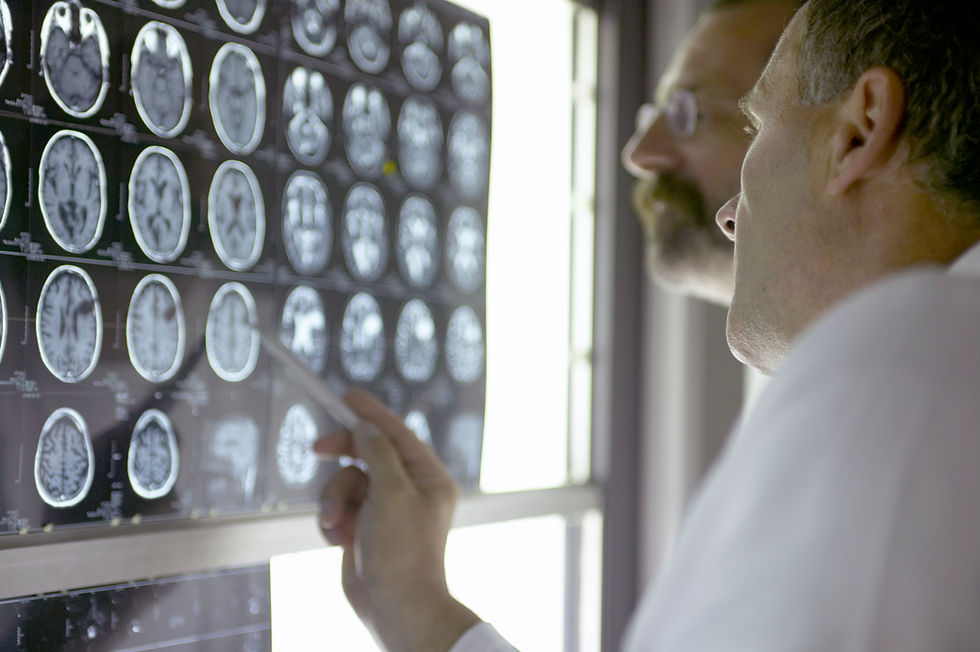Bariatric surgery reduces idiopathic intracranial hypertension
- owenhaskins
- Apr 26, 2021
- 3 min read

Bariatric surgery is more effective than dieting to reduce idiopathic intracranial hypertension (IIH), according to a study led by the University of Birmingham and University Hospitals Birmingham NHS Foundation Trust (UHB).
Idiopathic Intracranial Hypertension (IIH) is a debilitating condition that raises pressure in the brain and can lead to chronic headaches and even permanent sight loss. The illness, which often leaves patients with a reduced quality of life, predominately affects women aged 25 to 36 and weight gain is a major risk factor of developing IIH and relapses of the disease.
Weight loss has been shown to be an effective treatment, with a reduction in body weight of between three to 15% inducing disease remission. However, maintaining weight loss is notoriously difficult, as most patients regain weight over a two-to-five-year period.
In the first clinical trial of its kind, the research team set out to analyse whether bariatric surgery or a 12-month community weight management intervention (delivered through Weight Watchers) would be the most effective for reducing brain pressure in women with IIH.
The trial, supported by the National Institute for Health Research (NIHR), involved 66 women with IIH with an average age of 32 years and a body mass index (BMI) of 35 or more. Half underwent bariatric surgery, while the other half took part in Weight Watchers. Brain pressure was measured by lumbar puncture at the start and after 12 and 24 months.
The results, ‘Effectiveness of Bariatric Surgery vs Community Weight Management Intervention for the Treatment of Idiopathic Intracranial Hypertension’, published in JAMA Neurology, showed that bariatric surgery was significantly more effective than community weight management, with those having had surgery seeing an average intracranial pressure reduction of 25% after 12 months.
The results also showed that the surgery group lost on average 23Kg, as compared to losing 2kg in the Weight Watchers group at 12 months. This difference was greater at 24 months with 24% more weight lost in the surgery group, compared to Weight Watchers. This was because the bariatric surgery group continued to lose more weight over time (28Kg from the start of the study to two years), whilst the community weight management group had regained weight lost and, on average, were only 1kg lighter than at the start of the study.
"A link between weight and IIH has long been observed but, until now, there has been no robust evidence that weight loss can reduce brain pressure,” said senior author, Professor Alex Sinclair, Professor of Neurology at the University of Birmingham and Neurology lead of the Idiopathic Intracranial Hypertension Service at UHB. "We have shown that weight loss achieved through bariatric surgery is significantly more therapeutic than community weight loss management interventions both in the short and longer term to treat IIH brain pressure. Whilst we recognise that bariatric surgery may not be an appropriate approach for all patients with IIH and increased weight, it is important to now have the evidence that a surgical approach can lead to significant sustained disease remission."
In addition, the researchers report bariatric patients also noted significantly improved at 12 months in their quality of life was (p=0.04) and 24 months (p=0.006).
"We hope that as a consequence of this research, current NHS and NICE guidance can change to include bariatric surgery as a treatment for women with IIH and a BMI greater than 35 when appropriate and in line with the patient's best interests and wishes,” added first author, Miss Susan Mollan, Director of Ophthalmic Research at UHB. "Weight stigma is a major barrier to patient care in IIH. We also hope this research will prompt discussion and education around weight management to ensure this sensitive topic is approached with care and dignity."
Co-author James Mitchell, Lecturer in Neurology at the University of Birmingham, commented: "Weight regain is often driven by biology rather than willpower, and obesity is a chronic relapsing disease that requires lifelong treatment. Therefore, it's essential that patients are given appropriate support to achieve weight loss and further work is done to ensure they have good access to weight management services."
Further information
To access this paper, please click here





Comments